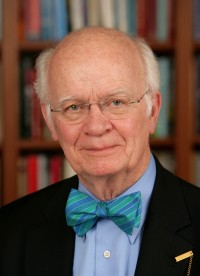The cost of buying in
Back when I was
co-directing a six-year study of militant religious fundamentalisms around the
world, critics used to ask me to define "modernity" and "modernization." To
many, mass media were the best symbols of the "modern." Yet as we studied
fundamentalists in a score of nations we were struck that in every case they were more at home with
the use of such media than were the "modernists" with whom they were at war. So
modernists and moderates yielded air space to them.
One could make a similar
case about capitalism, not God's ancient way of organizing economies but an
invention of early modernity, credit for which might go to John Calvin or Adam
Smith.
Light thrown on the
paradoxes of modernity shines in Daniel T. Rodgers's Age of Fracture, as quoted in Robert Westbrook's review in Bookforum (not
available online). Here are some
lines that scored:
Rodgers
is particularly acute in showing the dilemmas that have tripped up
conservatives in their odd, Janus-faced quest to recover continuity, tradition,
and a scheme of absolute values while also celebrating a capitalist marketplace
allied with the destabilization, counterhistoricism and relativism of their
opponents.
Exactly. Now, applied:
The
conservative Protestant protagonists of the culture wars have found themselves
caught up precisely in the culture they feared: sacralizing, refashioning,
fusing, and appropriating the transient fads and products of "postmodernity"
even as they tried to ward them off.
Exactly, again. To illustrate:
There
were sex manuals and sexual enhancement videos for Christian married couples.
There were theme parks and fashion products to let conservative evangelical
Americans participate in the whirling market of consumer goods.
Thanks, Rodgers and
Westbrook, for writing most of my post for me. From here on I'll use my own
words.
Many but not all
dimensions of megachurch production embody all this. Sneers by "contemporaries"
at "traditional" music, architecture, liturgy and culture have accompanied this
kind of talk by this kind of conservative evangelical ever since they stopped
demonizing rock music and its accoutrements and started adopting them (with some Jesus thrown
in). And much emerging-church rhetoric --though certainly not all of
it--explicitly rejects anything born before yesterday.
To give Protestant
conservatism its due: many of these experiments were sincere efforts to reach
people who, at home only in postmodern and pop cultures, were deserting Catholic
and mainline Protestant churches, with "the young" leading the flight. Should
such evangelicals not have tried to communicate with them and attract their
loyalties, however fleeting? Instead of offering Christian rock as an
alternative, should they have abandoned the kids to the secular kind? One can
hear the apostle Paul pounding his "By no means!"
What
thoughtful youth leaders, musicians, pastors and planners can take from
Rodgers's observations is this caution: as you buy into everything he sees you
buying into, do know that you will pay a price. How high the price and what the
details of the "contemporary" are to be, conscientious Christians must
calculate and judge.
To
say more might mark me as a fuddy-duddy traditionalist, and being named that is
a higher price than I and my kind would want or need to pay.






